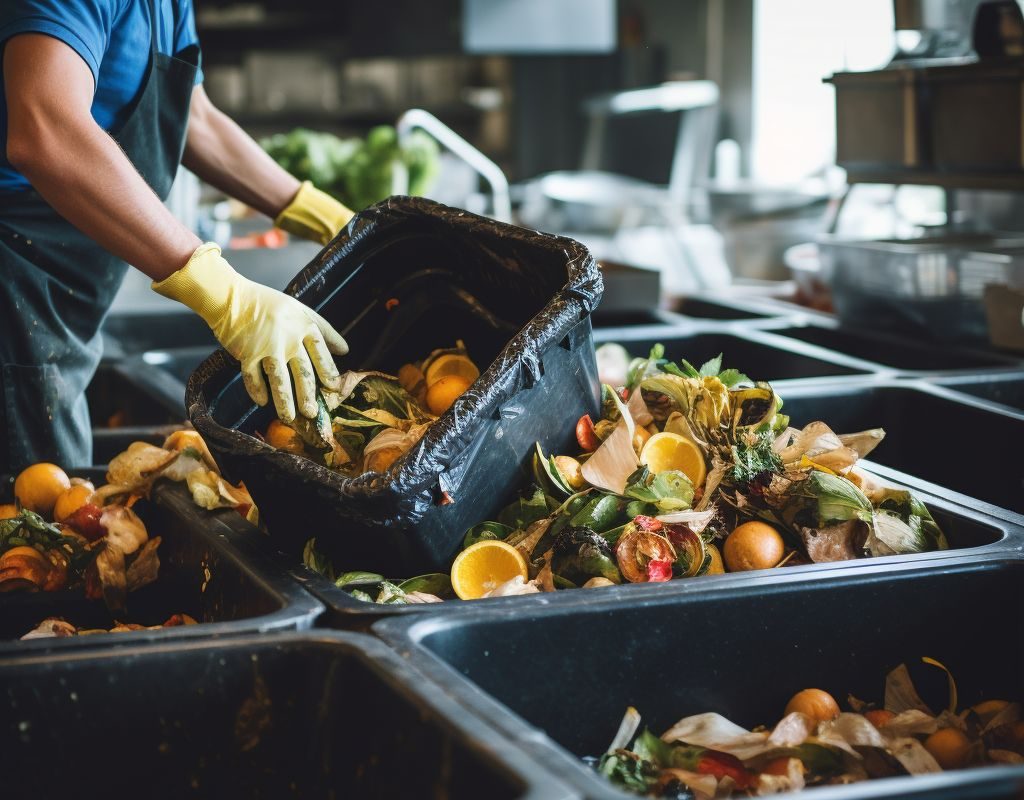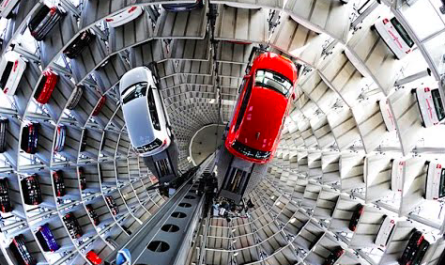As the catering industry in Europe struggles with the pressing need for sustainability, COP28 has brought forward significant developments. The UN Food and Agriculture Organization’s roadmap, coupled with the Emirates Declaration on Sustainable Agriculture, highlights a global commitment to combat food waste and address climate change. With over $3 billion committed to food and agriculture during COP28, it’s evident that the world is recognizing the crucial role of food systems in climate action.
In this blog post, I share the sources I found relevant for guiding catering business professionals and owners in navigating the challenges and opportunities presented by evolving sustainability standards in the European catering industry.
Market Outlook and Key Figures
Begin by understanding the market’s dynamics, trends, and crucial players. In exploring the catering industry’s dynamics, trends, and key players, I found these sources invaluable during my research:
• Deloitte’s Food Services Market Monitor (2023): This resource stands out as an invaluable tool providing profound insights into the evolution of the market, consumer trends, and crucial business requirements.
• Eurostat – Key Figures on the European Food Chain (2022): Aligned with the European Commission’s Farm to Fork Strategy, a pivotal aspect of the European Green Deal to achieve climate neutrality by 2050, this paper offers a statistical foundation for a comprehensive view of the market.
• Food Service Europe (2023): For specialized knowledge, this source serves as the authoritative voice of the contract catering sector, providing a deeper understanding of industry nuances.
• Mordor Intelligence’s Europe Food Service Market (2017-2029): Offering a detailed sector analysis, this report is a valuable reference for those seeking an in-depth examination of the European foodservice market.
• JRC Technical Reports (2015): this extensive market analysis provides a historical perspective and insights into long-term trends shaping the industry.
For a deeper dive and highlighted points from these sources, check out my blog posts:
Efficient Food Waste Management Across Catering Sectors
Discover innovative approaches to food waste reduction in the catering industry. Three studies provide targeted solutions for businesses, focusing on critical factors and introducing initiatives for efficient control and prevention. Explore sustainable practices for restaurants, hotels, canteens, and school settings:
• Food Waste Management in the Catering Industry: Enablers and Interrelationships (2021). This study on food waste in the catering industry, based on data from 32 businesses in Wales, identifies critical factors across procurement, processing, operation strategy, and consumer behavior. The proposed methodology offers targeted solutions for businesses to efficiently manage and control these root causes, maximizing value for both the business and the environment.
• Prevention of food waste in restaurants, hotels, canteens and catering (2012). This study aims to focus on reducing food waste in the hospitality sector, specifically in restaurants, hotels, canteens, and catering. The objective is to deliver a brief report on new initiatives targeting avoidable food waste, accompanied by a guide for prevention.
• The opportunity of tracking food waste in school canteens: Guidelines for self-assessment (2017). The text emphasizes reducing food waste in school canteens, proposing standardized guidelines for easy-to-implement audits. Tested in four schools, the tool shows promise for effective waste measurement and reduction, garnering interest from managers and staff for sustainable practices.
For a deeper dive and highlighted points from these sources, check out my blog post:
Tech-Driven Solutions for Catering Inventory Management: Swiss example in Waste Reduction
Dive into the realm of inventory management in the catering industry, where technology takes center stage. This exploration unveils how modern software and apps empower catering professionals to track ingredients seamlessly, manage expiration dates, and optimize order quantities.
• Reducing Food Waste Using Information Technology: A Case from Switzerland (2023). This paper explores the role of IT in addressing food waste, specifically in Swiss households. It examines willingness to use IT, expected benefits, and essential functionalities for waste reduction. The structure includes theoretical and practical aspects, incorporating findings from a representative survey. The paper concludes with insights for future work.
• Sustainability-Oriented Innovations in Food Waste Management Technology (2021). The text highlights global food waste, notably in HORECA firms, due to a lack of awareness about sustainable innovations. A case study on the tech startup KITRO, collaborating with HORECA, suggests that adopting technology and third-party collaborations can strategically minimize waste and enhance open innovation.
For a deeper dive and highlighted points from these sources, check out my blog post:
In closing, this blog post navigates the challenges and opportunities surrounding food waste in the European catering industry. Fueled by global commitments like COP28 and initiatives such as the Emirates Declaration on Sustainable Agriculture, the industry is witnessing a transformative shift towards sustainability. Insights from reputable sources like Deloitte, Eurostat, and Mordor Intelligence provide a comprehensive understanding of market dynamics. The exploration of efficient food waste management strategies reveals targeted solutions across diverse settings, while tech-driven solutions exemplified by Swiss case studies showcase the transformative power of technology. This post aims to guide catering professionals in embracing sustainable practices and staying abreast of key trends.
For further details, check out the provided links to the corresponding blog posts.
Reference List:
Deloitte. (2023). Food Services Market Monitor.
Eurostat. (2022). Key Figures on the European Food Chain.
Food Service Europe. (2023). Contract Catering Sector Report.
Mordor Intelligence. (2017). Europe Food Service Market (2017-2029).
Sjögren, P., Lee, P., Eatherley, D., Neto, B., Rodríguez Quintero, R., & Wolf, O. (2015). JRC Technical Reports.
Wu, Z., Mohammed, A., & Harris, I. (2021). Food Waste Management in the Catering Industry: Enablers and Interrelationships.
Marthinsen, J., Sundt, P., Kaysen, O., & Kirkevaag, K. (2012). Prevention of Food Waste in Restaurants, Hotels, Canteens, and Catering.
Derqui, B., Fernandez, V., (2017). The Opportunity of Tracking Food Waste in School Canteens: Guidelines for Self-Assessment.
Blöchlinger, Y., Blunschi, M., & Krey, M. (2023). Reducing Food Waste Using Information Technology: A Case from Switzerland.
Martin-Rios, C., Hofmann, A., & Mackenzie, N. (2021). Sustainability-Oriented Innovations in Food Waste Management Technology.



